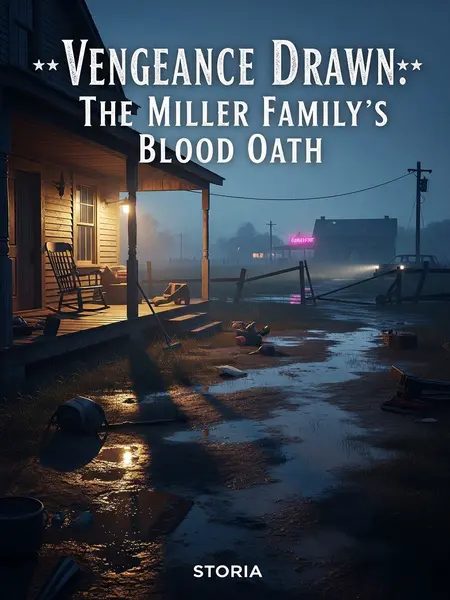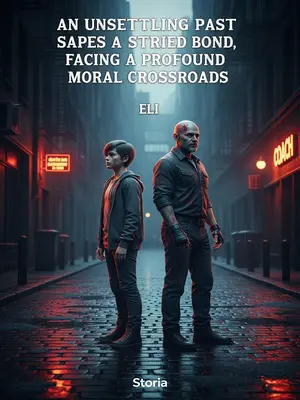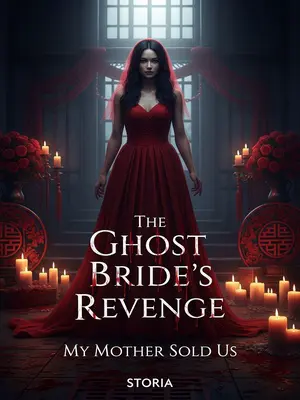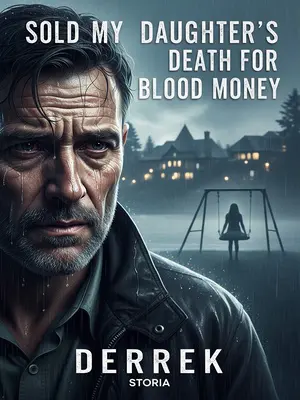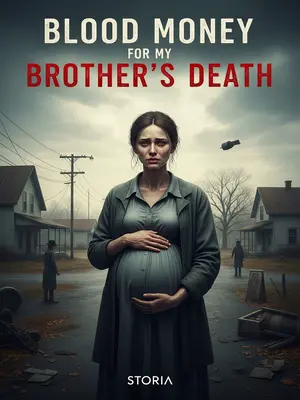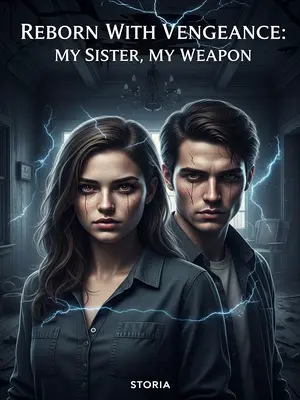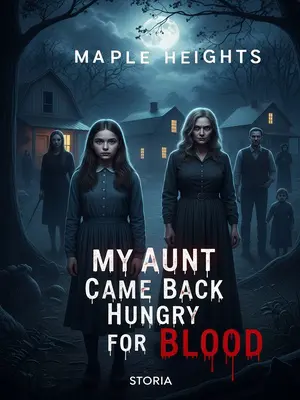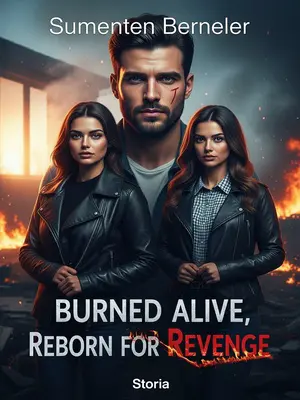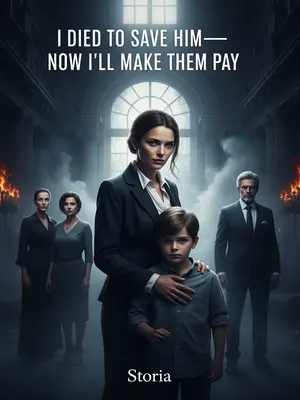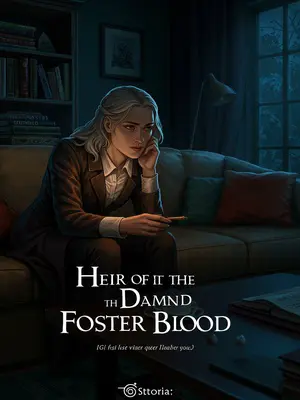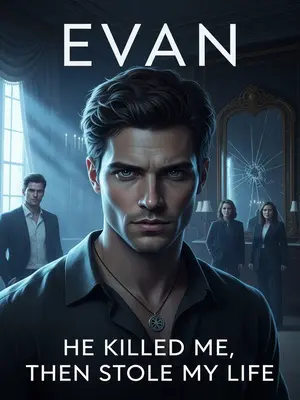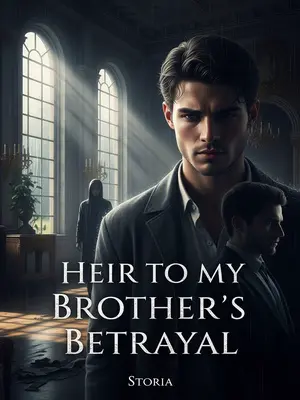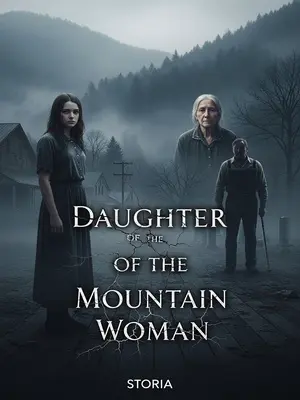Chapter 4: Fear and Consequence
I asked, "What’s so funny about beating a good person?"
My voice was low, steady, calm as the grave. Their eyes flickered to the knife, the smashed table, the locked door. Suddenly, nobody wanted to laugh.
Someone cursed, "Idiot," and came up to me, saying, "What are you talking about?"
The words were braver than the kid behind them. Hands shaking.
I said, "I’m asking you—what’s so funny about beating an honest man? If your parents can’t teach you, I can."
He laughed.
But it was hollow, empty of bravado. He tried to shove me, but I didn’t move.
He shoved my chest and said, "Trying to scare me? Do you know who we are?"
I met his eyes, cold and steady.
I shook my head, "No one cares about the names of bottom-feeders."
The insult stung. He bristled, fists clenched.
As I spoke, I drew the knife from my pocket.
The blade flashed in the dim light. The air thickened, fear finally settling in.
The blade, once stained with blood, was now wiped clean on my jeans, gleaming coldly.
I made sure they saw it, made sure they knew what it meant. This wasn’t a game anymore.
Some were frightened. Some weren’t.
A few kids stepped back, but one or two tried to act tough, spitting curses.
Like the punk in front of me.
He stood his ground, shaking with adrenaline, trying to play the hero.
He sneered, "Oh, trying to scare us with a knife? Go ahead, I’ll let you stab me today."
His voice was wild, manic. He pointed at his own head, daring me.
He lowered his head, offering his skull, then pointed to his scalp: "Stab here. If you don’t, you’re my dog."
He thought he was in control. He had no idea how far out of his depth he was.
I laughed.
A short, sharp bark—more pity than humor. He didn’t even know the rules of the game.
Punks are amusing.
I’d seen dozens like him—kids thinking toughness is all voice and swagger. Real toughness is knowing when to walk away.
I said, "First, knives aren’t for stabbing heads. Second, the human skull is too hard. I won’t stab your head."
I let the words sink in, letting him believe, for a second, he’d won. The others started to laugh, thinking I was bluffing.
Everyone thought I was chickening out and started laughing.
It was their last laugh. I felt the moment break, the line cross, and everything changed.
The guy felt he’d shown enough bravado. He lifted his chin, pointed at my nose, and said, "I gave you a chance, but you’re useless. You—"
He never finished. I moved faster than he could blink.
Before he could finish, I moved.
I caught him by the shoulder, spun him, and kicked his knee. He went down, hands on the table.
I kicked his knee, making him kneel, hands on the table.
He yelped, pain cutting through his bravado. The others froze in shock.
I raised my knife and drove the blade straight through his palm, pinning it to the tabletop.
The blade punched through flesh and wood, blood blooming in an instant. The boy screamed, the sound raw and animal.
Screams echoed through the café.
Some kids turned away, gagging. Others just stared, too stunned to move. Tyler’s face went ashen, lips pressed tight.
Everyone was stunned. The once-arrogant punk howled like a wounded animal.
For a moment, the only sound was his wailing—the sound of all their illusions shattering.
I said coldly, "Knives are for stabbing."
My voice was ice. The truth hung in the air, inescapable.
Blood spurted from his hand. He clutched it, but the bleeding wouldn’t stop. As blood poured between his fingers, his arrogance vanished, replaced by sobbing: "Man, I’m sorry, please calm down."
He whimpered, voice cracking, all the bravado gone. The others backed away, hands up.
A half-grown punk who bullied honest people, now showing a child’s fear before a real tough guy.
I saw them for what they were—kids playing at being monsters, until they met one for real. The room reeked of fear and regret.
I sighed, "Seems there’s nothing to prove you’re worth more than a bottom-feeder."
My voice softened—just a little. I felt sorry for him, for all of them. But it wasn’t enough to stop me.
I pulled the knife out. As I did, the blade sliced across his wrist, severing his tendon.
His scream went up another octave, blood spraying the wall. The rest scrambled away, eyes wild.
He convulsed, fell, clutching his ruined wrist, wailing.
Nobody moved to help. They were all trying to save themselves.
The whole place fell silent.
Even the street outside seemed quiet. Fear, real and thick, filled every inch of the room.
I walked toward them. The faces of these punks were now filled only with terror.
Each step made them shrink back, pressed against the walls. Their eyes begged for mercy, but none was coming.
I asked, "Is it funny? Looking at your faces, I think it’s pretty funny too."
The words were bitter. I let them see what it felt like to be the joke.
Tyler still held the empty beer bottle, but now he couldn’t fight or run.
His hands shook so badly he almost dropped it. He looked around for an exit, but there was none.
Everyone panicked, pushing him forward, but after two steps, his legs buckled and he couldn’t even stand.
The kids shoved him ahead, hoping he’d take the brunt. Tyler went down, hard, knees giving out.
We were only on the third floor.
The window beckoned, cold and unyielding. Some glanced at it, thinking they’d rather risk the fall than face me.
For Tyler, jumping out the window might have been his best option.
I almost felt sorry for him. Almost. Then I remembered Carter.
But at this age, saving face is everything—especially in front of his followers.
Pride kills more kids than bullets ever will. Tyler squared his shoulders, trying to look brave, but everyone could see through it now.
I know that many young people pay the price in society because they can’t let go of their pride.
It’s an old American lesson—sometimes the hardest thing is admitting you’re scared and walking away.
Tyler tried to act composed, "Man, don’t be so impulsive. We were wrong too. Using a knife is pointless."
He tried to talk his way out, but the fear was clear in his voice.
I sneered.
He was still lying to himself, pretending this was just another scuffle. I wouldn’t give him the satisfaction of an easy out.
He was talking tough, but clearly backing down.
His eyes darted to the door, the window, anywhere but me. I could see the calculation—fight, run, beg, or die.
Tyler said, "Man, where are you from? I know a lot of big guys. Maybe we’re on the same side."
He tried to bargain, tried to make me an ally. But that ship had sailed.
I replied calmly, "Miller family council."
The words landed like a hammer. The other kids went pale.
He panicked: "I don’t get it. Never heard of that crew. You know Jason from Lincoln High? Or the Guardians from East Gate Bar?"
He clung to old alliances. None mattered now.
I shook my head. "Enough nonsense. Come here. I’ll cut your hand and foot tendons—like I did to your dad—and this ends."
The offer was cold, final. The kids froze, horror dawning.
Tyler was stunned: "What about my dad?"
His voice broke. He’d never expected the sins of the father to come back for him.
I took a severed finger from my pocket and tossed it in front of him.
It landed with a dull thud, the gold ring flashing. The room erupted in screams.
On the finger was a heavy gold ring engraved with the word ‘MONEY.’
Tyler’s eyes widened, mouth working soundlessly. He knew the ring, knew the truth, and it broke him.
It was Tyler’s father’s finger.
A message, as clear as any. Nobody here would forget it.
In an instant, everyone but Tyler turned pale, screaming in terror.
The girls clawed at the walls, the boys pounded on the door. Nobody cared about pride anymore. Only survival.
The delinquent girl stammered, "Tyler, he’s clearly here for you. Hurry!"
Her voice cracked, desperate for someone else to take the hit. Tyler glared at her, all the affection gone.
Tyler turned and glared at her viciously.
He wanted to blame someone, anyone. But there was nobody left to take the fall.
The girl panicked, "Tyler, only you can handle him!"
She tried to shift the burden back, desperate to save herself. The room had become a pit of snakes.
Tyler slapped her, cursing, "Why don’t you go yourself?"
The crack of skin on skin echoed. The girl staggered, shock and betrayal on her face.
She covered her face, stunned, staring at him.
Tears welled in her eyes, the tough mask falling away. For the first time, she looked her age—just a scared kid in over her head.
Suddenly, she shouted, "I’m not your sister anymore! I’m out of here!"
Her voice was shrill. She shoved past the others, aiming for the door, anywhere but here.
She covered her face and tried to slip past me, but I grabbed her arm.
My grip was gentle, but unyielding. She flinched, terror in her eyes.
She cried and pleaded, "Sir, I didn’t do anything to you. If you want to hit someone, hit him. Let me go."
Her voice was small, broken. She looked at me like I might be the last adult in the world who could show mercy.
I asked, "When he robbed me, you just watched and laughed, didn’t you?"
She froze, her mouth working soundlessly. There was nothing left to say—her guilt as plain as the blood on the floor.
She froze, unable to answer.
I pressed the tip of my knife to her eye and said coldly, "Since you like to watch filth, you don’t need these eyes."
The blade glinted inches from her skin. She whimpered, eyes squeezed shut, her whole body trembling. The room was silent, save for her crying—and somewhere, not far enough away, the sirens began to wail. In this town, everyone knew: when the Millers locked the door, nobody got in until they were done.
